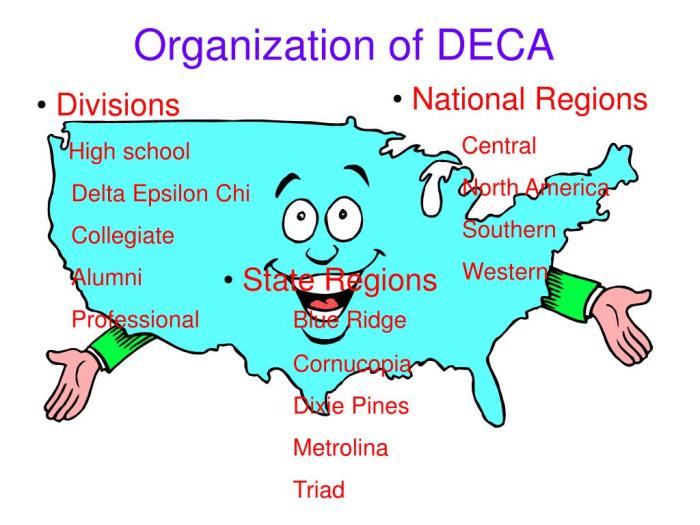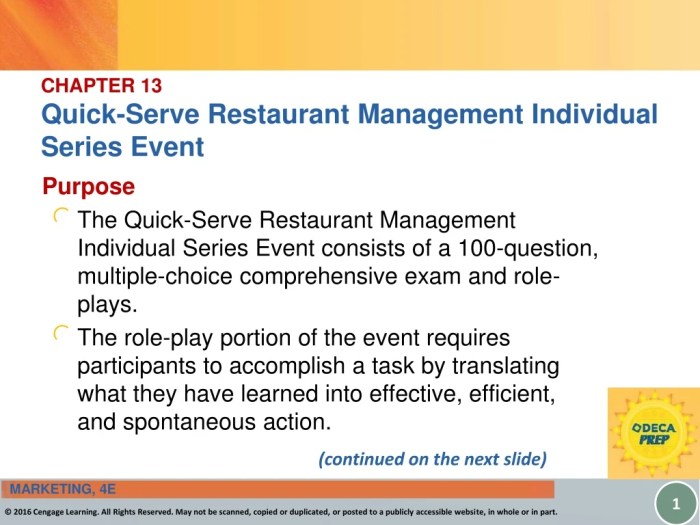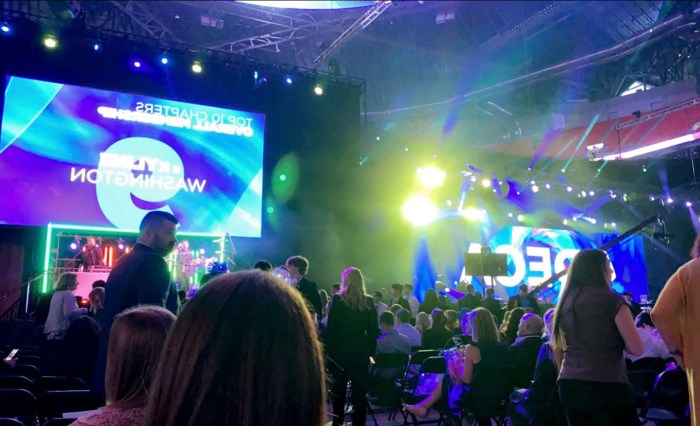Deca quick serve restaurant management is revolutionizing the QSR industry, offering a comprehensive suite of solutions to streamline operations, improve efficiency, and drive profitability. This in-depth guide delves into the intricacies of QSR management, showcasing how Deca empowers businesses to navigate challenges, optimize decision-making, and achieve unparalleled success.
From defining the unique characteristics of QSRs to identifying best practices and leveraging cutting-edge technology, this guide provides a comprehensive overview of the Deca software suite and its transformative impact on the QSR landscape. Real-world case studies and success stories illustrate the tangible benefits of Deca, quantifying improvements in customer satisfaction, revenue growth, and overall profitability.
Restaurant Management Overview

Efficient restaurant management is crucial for profitability and customer satisfaction. Key performance indicators (KPIs) measure success, including sales, customer satisfaction, and operational efficiency. Technology plays a vital role in modern restaurant management, streamlining operations and enhancing decision-making.
Role of Technology in Restaurant Management
- Point-of-sale (POS) systems automate order taking and payment processing.
- Inventory management systems track stock levels and prevent shortages.
- Customer relationship management (CRM) systems manage customer data and improve loyalty.
Quick-Serve Restaurant (QSR) Specifics

QSRs are characterized by fast service, limited menus, and standardized operations. QSR managers face challenges such as high turnover, customer expectations, and competition.
Best Practices for Managing QSRs
- Optimize menu for speed and efficiency.
- Implement efficient kitchen operations.
- Train staff for speed and accuracy.
- Monitor customer satisfaction regularly.
Deca Software Suite

Deca is a comprehensive software suite designed for QSR management. It offers key features such as:
Key Features of Deca
- Order management
- Inventory control
- Staff management
- Reporting and analytics
Deca Implementation and Best Practices
To implement Deca effectively, follow these steps:
Deca Implementation Guide
- Assess current operations and identify areas for improvement.
- Configure Deca to meet specific QSR needs.
- Train staff on Deca’s functionality.
- Monitor usage and make adjustments as needed.
Case Studies and Success Stories: Deca Quick Serve Restaurant Management
QSRs have experienced significant benefits from implementing Deca:
Deca Case Study: Fast Food Chain
A fast food chain using Deca reported a 15% increase in sales and a 10% decrease in operating costs.
Industry Trends and Future Outlook

Emerging trends in the QSR industry include:
Future Outlook for Deca, Deca quick serve restaurant management
Deca will continue to innovate and integrate with emerging technologies to enhance QSR management. Its role will be crucial in driving efficiency, improving customer satisfaction, and enabling data-driven decision-making.
FAQ Overview
What are the key challenges faced by QSR managers?
QSR managers face unique challenges, including managing high customer volume, optimizing labor costs, ensuring food safety, and adapting to changing consumer demands.
How can Deca help improve efficiency in QSRs?
Deca streamlines operations by automating tasks, providing real-time data and analytics, and facilitating seamless communication between staff.
What are the benefits of implementing Deca in a QSR?
Deca implementation leads to increased sales, reduced costs, improved customer satisfaction, and enhanced decision-making.